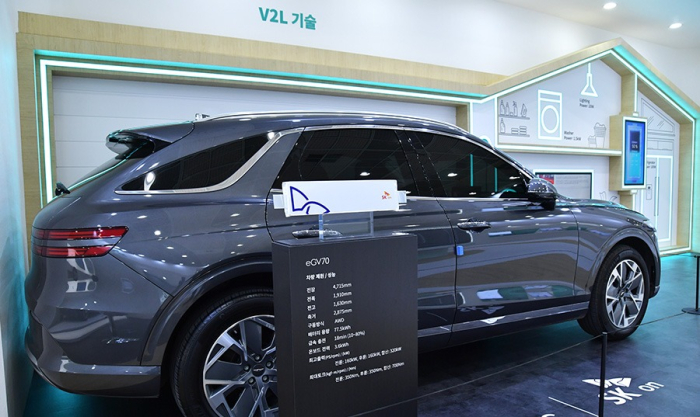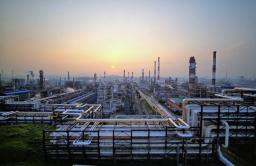-
KOSPI 2577.27 -2.21 -0.09%
-
KOSDAQ 722.52 -7.07 -0.97%
-
KOSPI200 341.49 +0.02 +0.01%
-
USD/KRW 1396 -2.00 0.14%
SK Innovation targets profit from EV battery unit in Q4
Earnings
SK Innovation targets profit from EV battery unit in Q4
SK Innovation stocks hit two-week high on rosy battery biz outlook, healthy Q3 earnings; lower refining margins dim Q4 outlook
By
Nov 03, 2023 (Gmt+09:00)
3
Min read
News+

SK Innovation Co., South Korea’s top energy company, said its electric vehicle (EV) battery subsidiary aims to turn to the black in the fourth quarter by cutting costs, improving productivity at overseas plants and securing more US tax credits despite slower global sales of the clean automobiles.
SK On Co., the world’s fifth-largest battery maker, reported an operating loss of 86.1 billion won ($64.6 million) in the third quarter, 36% less than a year earlier, as sales jumped 45% to 3.1 trillion won, its parent SK Innovation said on Friday.
“The battery unit aims to swing to a profit in the fourth quarter through continuous improvements to productivity at overseas plants, an increase in AMPC benefits and cost reductions,” SK Innovation said in an earnings statement, referring to the US advanced manufacturing production credit.
The US government offers the AMPC to battery makers for “eligible components” produced in the country or its possessions as it aims to boost its domestic EV industry. Washington provides a credit of $35 per kilowatt-hour (kWh) for battery cells and $10 per kWh for modules made in the US.
The US government has been granting consumers up to $7,500 per EV if the vehicle is assembled in the US and the battery's minerals are mined or processed in the country or one of its free trade partners, such as South Korea.
SK On collected 209.9 billion won of the AMPC in the third quarter, far outpacing its combined 167 billion won from the first and second quarters, as the company raised output and sales, SK Innovation said. The battery maker operates two plants in the US state of Georgia where it manufactures as much as 22 gigawatt hours (GWh) per year. It plans to expand its capacity in the country to 186 GWh by 2025.
The upbeat report pushed SK Innovation’s share price up 11.3% to 142,000 won on the Korean stock market, its highest since Oct. 20. The benchmark Kospi rose as much as 1.2% on Friday.
SK INNOVATION REPORTS HEALTHY EARNINGS
SK Innovation said its total operating profit more than doubled to 1.6 trillion won in the third quarter from a year earlier, though sales fell 12.6% to 19.9 trillion won. The energy unit of Korea’s No. 2 conglomerate SK Group suffered an operating loss of 106.8 billion won in the second quarter.
“Profits from existing businesses such as refining, petrochemicals and lubricants grew in the third quarter, while the battery unit enjoyed better productivity and a higher AMPC,” the company said, adding that its operating profit margin rose by 8.4 percentage points to 7.9% from the previous quarter.
The refining unit logged an operating profit of 1.1 trillion won in the July-September period, more than triple the same quarter in 2022, on higher margins although sales skidded 21.9% on-year to 12.3 trillion won in the third quarter.
The benchmark Singapore gross refining margin — what refiners make on processing each barrel of crude — averaged $13.7 per barrel in the third quarter, nearly double that of a year earlier, according to Hana Securities Co. in Seoul.
The margin, a key barometer of refineries’ earnings, fell to $11.6 per barrel in the first week of October, however, stretching a losing streak to three consecutive weeks due to weak global demand after hitting $16.8 in the second week of September.
Such slides are likely to hurt SK Innovation’s fourth quarter earnings, industry sources in Seoul said.
Write to Mi-Sun Kang at misunny@hankyung.com
Jongwoo Cheon edited this article.
More To Read
-
Oct 12, 2023 (Gmt+09:00)
-
 Electric vehiclesHyundai ties up with LG, SK for $5.3 bn US EV cell plants
Electric vehiclesHyundai ties up with LG, SK for $5.3 bn US EV cell plantsApr 21, 2023 (Gmt+09:00)



